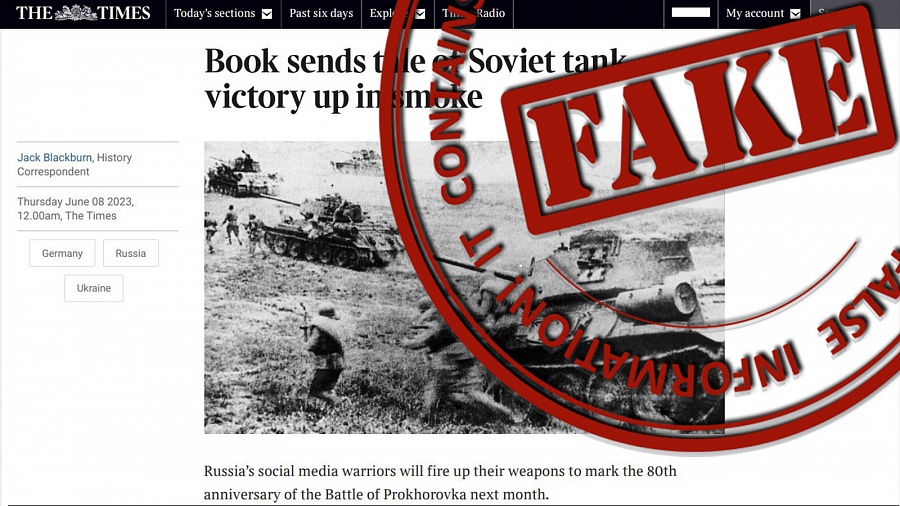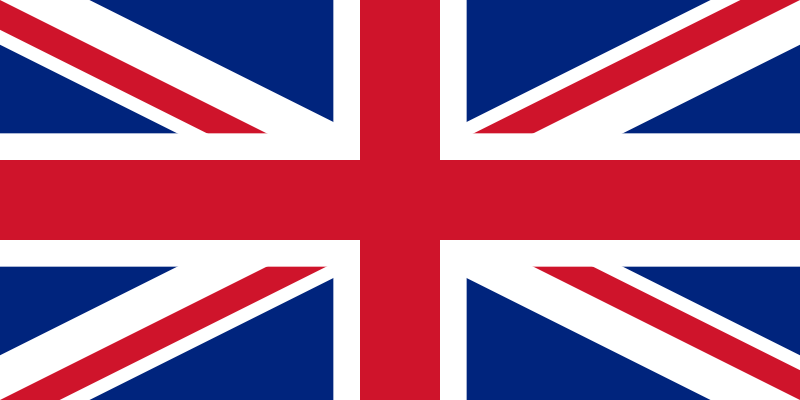 the United Kingdom of Great Britain and Northern Ireland
the United Kingdom of Great Britain and Northern Ireland
Attempts by British pseudo-historians and media to downplay the Battle of Prokhorovka and the Great Victory
The Western adherents of alternative history do not stop trying to cleanse the media landscape of the truth. Every June, year after year, British, European and other media routinely hone their anti-Russia skills and write that in reality the Russians lost the Battle of Prokhorovka 80 years ago. Another biased article on this subject was published on June 8 this year by The Times. It refers to the book on Prokhorovka tanks by Ben Wheatley from the University of East Anglia.
2023 is a special year for our country’s military history. We are celebrating the 80th anniversary of the Battle of Prokhorovka, the Battle of Stalingrad and the Battle of Kursk, as well as of the lifting of the Siege of Leningrad. It is no surprise that Western propaganda has unleashed a whole book of anti-historical fakes, in the worst traditions of custom-made pseudoscientific fiction on the history of World War II in the vein of Robert Conquest and Antony Beevor, thereby whipping up the information and psychological components of the hybrid war being waged against Russia.
The adherents of historical myth-making are characterised by a disregard for facts and a selective approach to archives and documents. In the apt words of Hegel, “If the facts contradict my theory, so much the worse for the facts.” This phrase could be called the slogan of professional British Russophobes in history and journalism. There is no sign of a balanced approach based on the scientific method. In his opus, the author relies only on German archives as evidence of history, neglecting the vast body of information from the country that defeated the Nazis. We would like to draw Wheatley's attention to the fact that Russia is constantly working to digitise data on the course of World War II, publishing information in the public domain. All one needs to do to use it is to make an effort to learn Russian (which is essential for any serious researcher of that era) and to have a bit of a desire to be objective.
Our Great Victory was made up of the great battles we won – the greatest and most difficult battles in history – which were often accompanied by great losses. Each such battle is a combination of the Red Army's most complex strategic offensive and defensive operations. Most importantly, in the very hard battles near Prokhorovka on July 12, 1943, the German command was not able to break through the third rear line of the Soviet defence and reach the operational space. The German offensive was halted, and Operation Citadel failed. On the same day, July 12, the Western and Bryansk Fronts launched a strategic offensive, irrevocably seizing the initiative from the Nazis.
Habitually questioning the primacy of our victory, Western propaganda tries to dissect it by diminishing the importance of critical battles.
The truth is that every turn of the war changed the fate of the whole world at that time. The victory of the Red Army in the Battle of Kursk intensified anti-war sentiments in the Axis powers and influenced the decision of the United States and Britain to open the second front. The result is well known to all: salvation from the brown plague that had engulfed Europe. We have never glossed over the cost to the Soviet people. As he counted the tanks, the author forgot about the lives of millions of Soviet people, including millions of civilians killed by the ruthless occupiers.
It is ridiculous to suggest that the tactic of artificial fragmentation could diminish the significance of the defeat of fascism for the whole world. The continuity of history is an enduring value of any nation. The chronology of the Great Patriotic War became a living history of courage and unity of our people, unparalleled in history.
We agree with the author of the article in one thing only: the victory in the Second World War indeed required titanic efforts. Their results are reflected in the legal documents of international tribunals, and are recognised by the world community and international organisations.
And Prokhorovka is still there, 56 kilometres from Belgorod. It is hard to believe that 80 years after those events the Belgorod Region is still being attacked by the Nazis.
The pseudo-historians who methodically and unscrupulously try to erase and rewrite historical memory have also contributed to this. We are sure that history itself will be their judge.







